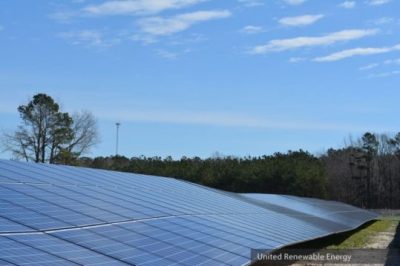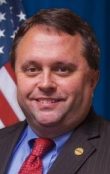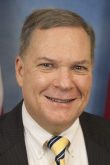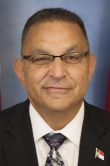BOLIVIA – Brunswick County commissioners pushed back to the planning board proposed changes that would tighten regulations on solar farms in the county.

In a unanimous decision Monday night during their regular monthly meeting, commissioners said they felt uncomfortable limiting the size of solar farms to 50 acres, a move that would impede the rights of private property owners, according to several people who spoke during a public hearing.
Supporter Spotlight
Some of the commissioners also questioned a proposed requirement that solar farm operators update a decommissioning plan every three years.
A decommissioning plan details how equipment will be removed from a site once it is no longer in operation, how the property will be restored once that equipment is moved and a financial guarantee ensuring the responsible party can cover associated costs.
Residents and a solar energy representative said mandating three-year updates would create an undo burden on the industry.
Keith Herbs, executive vice president of United Renewable Energy, an Alpharetta, Georgia-based solar project developer, said he agrees that a decommissioning plan should be required in cases where there is a change of ownership, but that updating a plan every three years would be onerous.
“I don’t see any other decommissioning requirements for any other industry,” in the county’s unified development ordinance, or UDO, he said, using examples of cellular phone towers and junk yards.Supporter Spotlight
United Renewable Energy has been involved with nine solar farm projects in Brunswick County, three of which were approved earlier this year.
“The solar projects we do provide a lot of benefits to the economy,” Herbs said. “They create stable income. The projects themselves are quiet, odorless. They don’t create additional traffic. They increase the tax base. I do feel that the current proposed amendment misses the mark in some respects.”
Last month, the planning board approved two more solar farm sites.
Solar farms in Brunswick County, including two the planning board approved last month, range anywhere from less than 5 acres to 40 acres, according to Mike Hargett, Brunswick’s planning director.
Like many rural counties in North Carolina, which the Solar Energy Industries Association ranks second in the nation for solar energy capacity, Brunswick County is trying to figure out how to best incorporate solar farms with current and future development.

“I’m certainly not interested in restricting anyone’s property rights,” Brunswick County Commissioner Chairman Frank Williams said. “It’s concern for the unknown. We felt like we had a responsibility to at least discuss it.”
County officials want to ensure the county does not end up littered with non-operating solar farms, he said.
A handful of county residents who spoke at the public hearing Monday on the proposed UDO amendment support the solar energy industry.
Leland resident Sandy Ford, a member of the Brunswick Environmental Action Team, or BEAT, said during the public hearing that the county needs to move forward with renewable energy.
“We have an excellent opportunity because we need jobs in Brunswick County, something that is cutting-edge jobs, and I think that’s in solar energy,” she said.
BEAT member Dale Todd issued a statement on behalf of the organization that supports “governmental actions at all levels, which promote and encourage the production and usage of renewable energy sources.”
Commissioner J. Marty Cooke said his family owns land that is the site of a roughly 35-acre solar farm outside of the county.

He said that, while he doesn’t believe solar energy is particularly productive, it’s profitable for property owners.
“I think having a cap is unreasonable,” Cooke said of limiting the size of solar farms.
Mandating three-year decommissioning plans is “terribly unreasonable,” he said. “I think if the property goes offline, I think that’s when you need to have that decommissioning aspect. I think it has to be specific.”
Commissioner Mike Forte agreed with Cooke.

“If it changes hands, we have to revisit that with the new owners,” Forte said. “I think that other counties are looking at what we’re doing. I don’t want to be the one that restricts property rights and I would hope that we would come up with a model that the other 99 counties say, ‘wow, we did get it right.’”
The general consensus among commissioners was to leave in place other proposed amendments, including setbacks and buffering guidelines.
The proposed setback requirements include the following:
- 200 feet from thoroughfare roads.
- 100 feet from residential districts.
- 100 feet from institutional uses.
- 50 feet from commercial districts.
- 25 feet from industrial districts.
- A minimum of 500 feet from scenic byways.
Other regulations would require solar farm developers to minimize grading and tree removal; avoid natural heritage areas; keep a minimum of 100 feet away from rivers and streams and a minimum of 50 feet from wetlands; and avoid the use of herbicides as much as possible.
It is unclear when the Brunswick County Planning Board will review and vote on another set of proposed changes to the UDO.
Commissioners have the discretion to hold another public hearing before deciding whether to adopt an update to the proposed UDO amendment.







